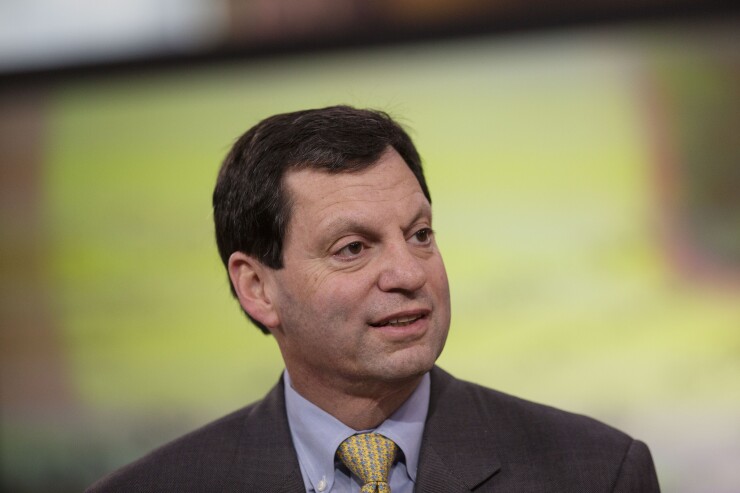Want unlimited access to top ideas and insights?
Welcome to the PaymentsSource Morning Briefing, delivered daily. The information you need to start your day, including top headlines from PaymentsSource and around the Web:
First Data acquires CardConnect for $750 million: First Data hopes to enhance its ability to integrate payments with other merchant services through an acquisition of processor and technology company CardConnect, which is already one of First Data's largest distribution partners. Following the acquisition, First Data will receive all outstanding CardConnect common stock for $15.00 per share, or about $750 million, in a transaction that's expected to close in the third quarter. The deal will add CardConnect's partner management tools, accelerate First Data's ISV initiative, and bring First Data technology to payment systems that are integrated with enterprise resource planning programs. CardConnect processes about $26 billion annually from 67,000 merchant customers. “This transaction is consistent with our strategy of integrating and scaling innovative technologies across our distribution footprint to better serve our partners and customers,” said First Data Chairman and CEO Frank Bisignano in a press release. “CardConnect is a long-standing First Data distribution partner and we are excited to incorporate their state-of-the-art solutions across some of our most important strategic initiatives such as partner-centric distribution, integrated payments, and enterprise payments solutions.” The CardConnect acquisition would add scale to

The voice of cash: Two paper money lobbyists are joining forces, as the
Quantum blockchain: The security of blockchain is a moving target, with arguments that it makes money movement both safer and riskier. The Russian Quantum Center has weighed in, developing a blockchain that's designed to enable data transfer with a high level of hacking protection. Gazprombank, one of Russia's largest financial institutions, has tested the blockchain and the Quantum Center is now pitching the technology to other banks, reports
How vulnerable are pacemakers? There are 8,000 bugs that hackers can use to exploit the programs that adjust and monitor pacemakers from four different pacemaker manufacturers, as well as access information that could potentially be used to compromise other records.
From the Web
China Daily | Sat May 27, 2017 - Alibaba Group Holding Ltd plans to lead an investment round of at least $1 billion in Ele.me, one of the largest players in China's food-delivery service sector. People familiar with the deal said that funding from Alibaba and its financial arm, Ant Financial Services Group, will value Ele.me at between $5.5 billion and $6 billion.
Reuters | Fri May 26, 2017 - Carnival Corp says Costa Cruises will launch Alipay beginning in June 2017, with plans to expand to additional ships in Costa Asia fleet later this year.
CNBC | Fri May 26, 2017 - Blockchain start-up Ripple built a digital payments network for real-time financial transactions. It suddenly has billions of dollars worth of cryptocurrency on its balance sheet.
More from PaymentsSource
PayPal has worked to build support from retailers and consumers, positioning it well in the competitive e-commerce game, writes Lauren Freedman, senior vice president of digital strategy at Astound Commerce.
Part of the huge shadow Ant Financial casts is its appetite for global investment, but at the same time it's making moves that are kicking off major changes to how payments are handled in its local market in China.
Automated teller machines have come a long way since Barclays rolled out the world’s first ATM at a branch in north London 50 years ago. Here’s a look at some of the milestone moments and key innovations in ATM technology over the past five decades.
UAE consumers often pay for Internet purchases via cash, and Dubai-based bank Emirates NBD aims to bridge that gap with its own e-commerce site to drive more transactions through its payments platform.




